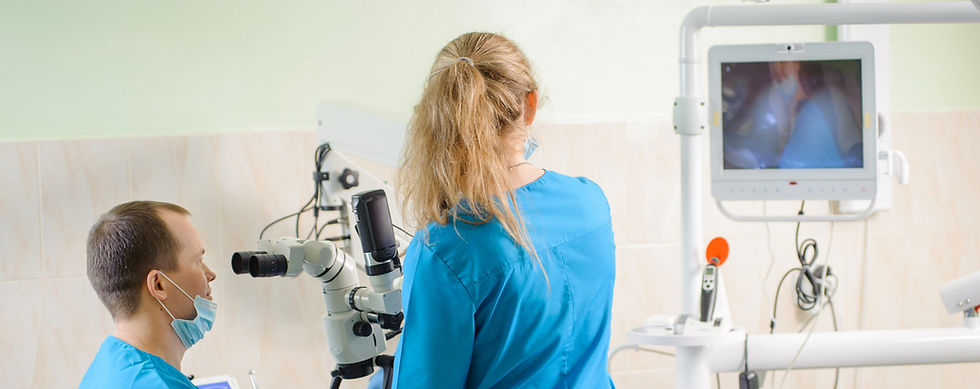Is There Any Risk to Colonoscopy?
- Aug 13, 2024
- 2 min read

Colonoscopy is a medical procedure that enables the visualization of the colon and rectum by inserting a long, flexible tube with a camera attached through the anus. It is an important tool in detecting and preventing colon cancer, as well as diagnosing various gastrointestinal disorders.
Benefits of Colonoscopy
Among the many benefits of colonoscopy, early detection and prevention of colon cancer is the most significant.
A colonoscopy can detect precancerous polyps in the colon, which can then be removed to prevent them from developing into cancer. When caught early, colon cancer has a high survival rate.
Apart from its role in preventing and detecting colon cancer, colonoscopy also allows for the diagnosis of other gastrointestinal disorders such as inflammatory bowel disease, diverticulitis, and ulcerative colitis.
It can also be used to investigate symptoms like abdominal pain, rectal bleeding, and changes in bowel movements.
Potential Risks of Colonoscopy
While colonoscopy is generally a safe procedure, there are some potential risks that patients should be aware of. These risks, while rare, include bleeding from the site where a polyp was removed, infection, and tears in the colon wall.
There is also a small risk of complications related to sedation or anaesthesia used during the procedure. Patients need to discuss these risks with their doctor before undergoing a colonoscopy.
Factors that Affect Risk
Various factors can affect the risk associated with colonoscopy. These include age, pre-existing medical conditions, and the presence of certain diseases or disorders.
Older patients may be at a higher risk due to weakened immune systems and other age-related health issues. Those with heart disease or lung disease may also face an increased risk during the procedure.
Additionally, patients who have previously had abdominal surgery or those with a history of colon or rectal bleeding may be at a higher risk for complications during colonoscopy.
Minimizing Risk
To minimize the risks associated with colonoscopy, it is important to follow all preparation instructions given by your healthcare provider.
This typically includes following a special diet and taking laxatives to clear the colon before the procedure. It is also crucial to inform your doctor of any medications, allergies, or health conditions you may have.
Takeaway
While there are some potential risks associated with colonoscopy, the benefits of this procedure far outweigh them. Early detection and prevention of colon cancer can save lives, making colonoscopy a valuable tool in maintaining good health.
With proper preparation and communication with your doctor, you can minimize any risks and reap the numerous benefits of this medical procedure.
So, if you are due for a colonoscopy, do not hesitate to schedule one with your healthcare provider. Your future self will thank you for taking this important step towards your overall well-being.
Disclaimer Notice
The content on this website, including text, graphics, images, and information, is meant for general informational purposes only and should not be used as a substitute for professional medical advice, diagnosis, or treatment. RICHMOND ENDOSCOPY AND GASTROINTESTINAL SPECIALISTS PTE. LTD takes no responsibility if the information on this website is used without consulting one of its specialists.
